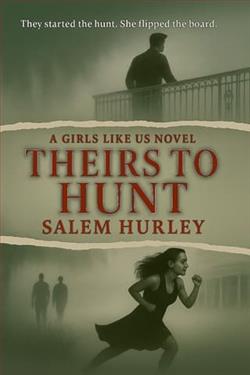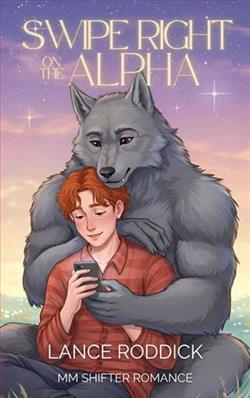Page 11 of The Nature of a Lady
Some of them seemed to be almost a laundry list, though she had no idea what sort of laundry it might refer to. The items were just odd abbreviations—likecnmandsvw—with tally marks beside them.
She flipped to another page, her gaze traveling over what was, at least, full words. A poem, it seemed.
What a lovely Tuesday afternoon
But it’s Wednesday, sir, I fear
No matter, that, for the sky is blue
And the waters crystal clear
How funny, given that it was Wednesday today. Smiling a bit over that, she turned another page. And frowned.Once upon a time, there was a princess. She lived on an island of rocks and bones, with no one to keep her company aside from the fairies.
Why in the world would the Other Elizabeth write a fairy tale in the margins of another book? A fairy tale that seemed to stretch on for quite a ways at that. She flipped several more pages, and all the handwritten words on them seemed to be part of the same story.
“I beg your pardon. Elizabeth?”
Libby started at the voice, smacking the book shut and turning on her rock. She didn’t know the voice. Or at least she didn’tthinkshe knew the voice. She couldn’t. Anyone who knew her would call herLadyElizabeth. Still, she turned before that thought could process, curiosity eclipsing the surprise.
A man probably in his thirties stood a few feet away. He looked windblown, cheerful, and utterly normal in his holiday clothes—shirt with sleeves rolled up, grey trousers, no waistcoat or jacket. Middling brown hair, brown eyes, average height. The only thing remarkable about him was his nose—prominent and a bit turned up at its tip. Well, that and the satchel pulling down his shoulder. He was entirely unfamiliar.
He didn’t seem put off by her lack of greeting though. Merely smiled and said, “What a lovely Tuesday afternoon.”
What? Did he just say ...? Before she could think better of it, sheheard herself reciting the next line of the poem. “But it’s Wednesday, sir, I fear.”
He chuckled and looked to the sky as if it had a calendar printed upon it. “So it is. Here you are, then.” He reached toward her rock as he opened the satchel, sliding a huge, paper-wrapped something onto the surface a foot or so away from her books and pencils. Aheavysomething, from the looks of it. Smiling all the while, as if it were perfectly normal for a complete stranger to call her by name, exchange a line of a handwritten poem with her, give her a gift, and then just tip his cap. “Cheerio.”
She blinked. “Good day.” What else was she supposed to say? She could protest, she supposed, that she had no idea what he was about. But then he’d probably take that parcel back, and she couldn’t deny a sudden, rather sharp desire to see what was in it. It was a rather enormous thing to be carrying around in a shoulder bag.
Curious indeed.
He whistled as he turned and tromped back through the sand and grass toward the path. A minute later he’d disappeared over the garrison wall. Libby watched him until he was gone, cataloguing everything she could think to note about him. Then, making herself ignore the parcel for a moment more, she grabbed her notebook and opened to a page at the back, jotting down her observations about him.
She scribbled down the words they’d exchanged as well as the clothes he’d been wearing. And finally the wordsBrown paper–wrapped parcel, round, approximately nineteen inches in diameter. Tied with white string.
There. She’d examined it all scientifically. She rather felt she’d earned the curiosity now as she reached for the parcel. The . . . rock? It certainly felt like one as she hefted it, which made her mouth twist. The last time someone had presented her with a rock, it had been Sheridan. And the rock had supposedly borne evidence of some ancient civilization that he claimed had once lived at the location of Telford Hall. She’d stared at it for a solid five minutes and noted absolutely nothing of interest. Had it contained a fossil or impressionof a leaf, perhaps she would have seen the allure. But chisel marks or whatever caught his eye? What did that matter?
If this was more of the same... Well, no way to know until she opened it. A tug on the string, a folding of the paper. And she frowned again.
It definitely wasn’t a tool-marked rock. It was, without question, a cannonball. A very large, very heavy cannonball.
Setting it down on the rock before her, she picked up her pencil again and described it as best she could, adding a couple sketches from the various angles that revealed wear.
A cannonball. Utterly boring, except for the mystery of the delivery.
There would be a simple, innocent explanation—there always was. And no doubt Mabena would help her determine what said explanation was later, when Libby showed her. But in the meantime, she might as well enjoy the oddity.
The growling of her stomach reminded her that the sun was directly overhead and there were luncheon fixings in the icebox in the cottage. Since she’d no doubt managed to get a sunburn on her nose already, despite her straw hat, she’d be wise to obey her stomach and go inside. At least for a while.
Perhaps tomorrow she’d bring a picnic lunch with her, like some of the other families along the beach had done. For now, she hefted the lead, grunting a bit at its weight. It had to be nearly twenty pounds.
Ten minutes later she was sitting at the little table in the cottage, her lunch on a plate before her. Never had she been gladder that she regularly horrified her sister by slipping down to the manor’s kitchen and helping the cook. When she was little, the sole appeal had been pilfering snacks. But it was rather handy now to know how to take care of herself. Heaven knew if Edith ever found herself alone in a kitchen, she would just stare at the icebox, waiting for it to deliver food on a silver platter.
No, that wasn’t fair. Edith would never allow herself to be alone in a kitchen to begin with.
She’d tucked away half of her sandwich, her nature journal openon the table before her so she could review her morning’s work, when a knock on the door drew her attention up.
It couldn’t be Mabena back already, not if she’d gone over to Tresco. Which meant Mrs. Pepper, probably, or her daughter. Perhaps a temporary neighbor.















